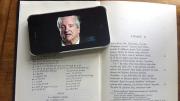The edX online-learning venture, born last May, is progressing from infancy to adolescence at Internet speed (see “Online Evolution Accelerates,” March-April, page 51). As it does, HarvardX, the University’s operating entity for the initiative, shows signs of both expanding ambitions and the interesting questions that inevitably accompany pell-mell growth.
• International reach. The edX partnership welcomed six new members during February—ranging from the Australian National University to Delft University of Technology—bringing its roster to a dozen institutions. During President Drew Faust’s March trip to Asia, she and HarvardX faculty director Robert Lue briefed Hong Kong alumni and business leaders on the University’s online teaching. Enrollments in free, massive, open online courses (MOOCs) suggest high student interest in rapidly developing nations such as China, India, and Brazil.
• Infrastructure. The University disclosed HarvardX’s leadership, including a senior administrative cohort led by provost Alan Garber; its faculty steering group, with representatives from seven schools and faculties, among them Harvard Law School dean Martha Minow; an education-research and -assessment committee—Andrew D. Ho, assistant professor of education, is research director; and a support team, with technology, communications, and fundraising personnel. See a complete report at https://harvardmag.com/edx-leaders.
HarvardX is hiring a production staff, including course-development, media, and video managers; personnel are at work on Mount Auburn Street, where video facilities are under construction. Meanwhile, both Harvard and MIT seek philanthropic support to fund their individual, $30-million commitments to launch edX.
• Economics. In late February, the Chronicle of Higher Education reported that edX was offering affiliated institutions two course-posting options. Under the “self-service” model, they can use the edX platform for free, producing courses without edX staff assistance; once such courses are live, edX receives the first $50,000 of revenue, and then splits any additional income equally with the university partner. An “edX-supported” model, with full design and production assistance, costs a base fee of $250,000 per course, plus $50,000 for each subsequent term it is online.
If those figures indicate the cost of developing a course—with video lectures, supporting materials, online exercises, messaging tools, programming, and hosting—then Harvard’s ambitions to get multiple courses online each semester suggest significant investments. Not counted in such costs is compensation to faculty members for preparatory work or running the courses once they appear online. To date, faculty members who wish to create online courses are doing so with significant University support, but without direct compensation for their time.
• Faculty members’ changing roles. Compensation aside, online teaching raises new questions about professors’ obligations. President Faust last fall asked a Council of Deans subgroup to revisit the 2000 policy on professors’ outside activities. Their draft, “Teaching and Other Educational Content in the Online Environment,” disseminated for comment, encourages experimenting with pedagogical technologies, but says, “When Harvard is able to accommodate a faculty member’s request to make educational content available online, the faculty member is expected to use a Harvard platform.” Using other platforms requires prior approval.
If this policy prevails, Harvard faculty members will be less likely than peers at other institutions like Stanford, which are experimenting with multiple online platforms, to have access to other, evolving technologies for such courses. And the issue of effective control over a faculty member’s free-time efforts, and possibly teaching content, is thereby brought into play. This may foreshadow future discussions about the ownership of intellectual property, given that a course may require costly software, production, and computer investments to engage with students.
• Fun—and function. In its frisky youth, HarvardX is offering classes such as “Science and Cooking,” the applied-sciences course that uses cuisine to teach principles of physics and engineering. But some choices loom. Among the applications (or markets) for the free MOOCs are teaching global learners in developing nations, as well as U.S. college students at hard-pressed institutions who need basic courses, are shut out of over-enrolled classes required for their degrees, or simply need cheaper alternatives for higher education.
Educating the globe via great teaching online is a social good, highly motivating to many dedicated professors—but it may not be the foundation for a business plan, and may even undercut residential universities’ economic model. Professors from leading research universities may not be motivated to develop the best foundational courses for entering learners of any sort—suggesting that edX members like the University of Texas system may have a leading role to play here.
As the edX experiment proceeds, HarvardX has the challenging agenda of becoming both a learning and a doing organization, capable of applying its research to classrooms across the campus as readily as to students around the world.
For a fuller report, see https://harvardmag.com/edx-13.









